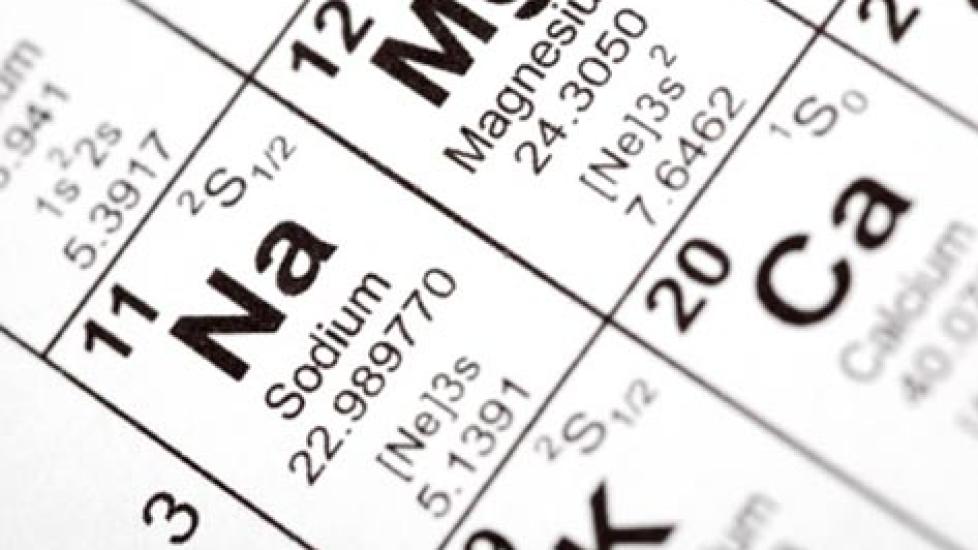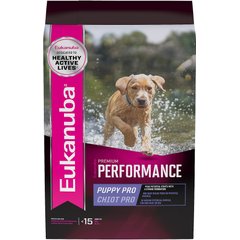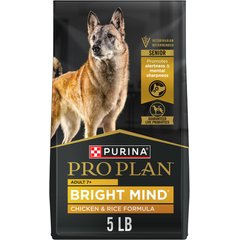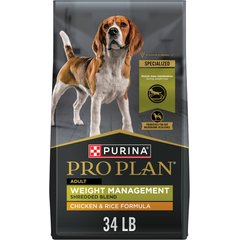Minerals: Finding the Right Sources in the Best Dog Food
How Minerals are Necessary for Dog Nutrition
Choosing the best food for your dog can prove difficult. One common issue is selecting a dog food with the proper balance of necessary nutrients from healthy ingredients. Minerals are one essential class of nutrients that must be included in a healthy, balanced diet. They are crucial for the proper development and function of your dog’s body. Specific minerals must also be present in a dog food in the right amounts to provide optimal health.
Some of the common functions that minerals perform include the formation of bone and cartilage, nerve and muscle function, fluid balance regulation, the transportation of oxygen in the bloodstream and hormone production. Minerals work together to coordinate various body functions and maintain normal activities on a daily basis.
While not getting enough of certain minerals is a concern, oversupplementation of any particular mineral can also cause problems. Because of this concern, dog food manufacturers must keep a close eye on just how much of each and every mineral is used in a dog food. The minerals used must also be able to survive normal processing and withstand being stored on the shelves for some period of time. They must be easily absorbed by the dog eating the food and they must be of good quality.
VIEW SLIDESHOW: Minerals: Finding the Right Sources in the Best Dog Food
Many essential minerals for dogs are provided by common fruits, vegetables, meats and whole grains. While these ingredients don’t typically provide the bulk of minerals in a dog food, they are used in many high quality products on the shelves today. The majority of the minerals used in dog foods typically come in pre-combined powdered mixes that are carefully measured and tested for quality assurance.
It is not reasonable for dog food manufacturers to provide minerals only in the form of raw ingredients because in that form they are less likely to survive processing. For this reason, you will also see a lot of chemical names appearing as mineral sources on a bag of dog food. You may notice ash listed on the back of the dog food bag, which is yet another source of minerals in a dog food. Ash provides many essential minerals and is therefore an integral part of a balanced diet and proper dog nutrition.
Types of Minerals for Dogs
So now that you know a little more about how dog food manufacturers get minerals into dog food, you may wonder, "So then, what do I feed my dog?" There are two basic groups of minerals: macrominerals and trace minerals. Macrominerals are required in larger amounts than the trace minerals and are found in greater amounts in a dog's body. Macrominerals include calcium, phosphorus, magnesium, sodium, chloride, potassium and sulfur. The trace minerals that are needed in much smaller quantities include iron, zinc, copper, chromium, iodine, selenium, manganese and fluorine.
Because they are necessary for maintenance of bones and teeth, calcium and phosphorus are very important macrominerals for proper dog nutrition. A deficiency in either of these minerals can lead to bone deformities or weakness. Fractures can easily result in dogs with calcium and phosphorus deficiencies. In young dogs, oversupplementation of these minerals can lead to abnormal growth and development, especially in large breed dogs. Calcium and phosphorus are also essential for blood coagulation, muscle growth and nervous system function in dogs.
Magnesium aids muscle and bone development and is necessary to allow the dog's body to absorb calcium. Magnesium works in harmony with calcium and phosphorus. Some dietary sources of calcium, phosphorus and magnesium for dogs include bone meal, fish, beans, molasses, muscle and organ meats, wheat bran and vegetables.
Sodium and chloride are minerals that work together to control the balance of fluid inside and outside of the body’s cells. They assist the functions of the dog's muscles, nervous system and heart. Chloride is required for the production of stomach acid. Imbalances of sodium and/or chloride can result in hair loss, fatigue, dehydration, and even paralysis in dogs. Dietary sources of sodium and chloride include whole grains, meats, fish, tomatoes, sweet potatoes and beans.
Potassium is similar to sodium and chloride in that it also works to maintain fluid balance and is necessary for muscle and nerve function. Deficiencies of potassium can lead to diarrhea, vomiting and other illnesses similar to sodium/chloride deficiencies. Without adequate potassium, the dog's heart will not be able to beat normally.
Sulfur is important in the maintenance of a dog's hair, skin, and nails. It assists wound healing and detoxifies the body. Skin conditions generally develop with sulfur deficiencies. Dietary sources of sulfur include eggs, fish, meat and molasses.
Trace Minerals for Dogs
Even though they are used in extremely small amounts, trace minerals are also essential part of dog nutrition. Some of the more common trace minerals you may be familiar with include iron, zinc, copper, iodine, magnesium and selenium. Iron is important in oxygenation of red blood cells, energy production and maintenance of the immune system and is found in organ meats (liver), poultry, beans and red meats.
Zinc also supports the immune system, is important in skin and hair coat health and aids in protein digestion. Dietary sources of zinc include eggs, pork, liver, brewer's yeast and lamb meat. Copper is necessary for the body to properly use iron and it also plays a role in bone growth and maintenance. Sources of copper include whole grains, liver beans. Iodine is important in the production of thyroid hormones which regulate metabolism.
Selenium is another essential trace mineral that works with vitamin E to support immune system function. Manganese is necessary for the body’s utilization of certain vitamins (B1, C, E and biotin). Other trace minerals you may have heard of include nickel, molybdenum, aluminum, silicon, chromium, boron, cobalt and fluorine.
Vet Recommended Dog Food
- Eukanuba Premium Performance Puppy Pro Dry Dog Food, 4-lb bag$25.99Chewy Price
- Purina Pro Plan Bright Mind Adult 7+ Chicken & Rice Formula Dry Dog Food, 5-lb bag$24.68Chewy Price
- Purina Pro Plan Adult Weight Management Shredded Blend Chicken & Rice Formula Dry Dog Food, 34-lb bag$77.48Chewy Price
- Hill's Science Diet Adult Lamb Meal & Brown Rice Recipe Dry Dog Food, 33-lb bag$83.99Chewy Price
See Also:
More to Explore
How Your Dog's Food Affects His Mood
5 Foods That Could Kill Your Dog




